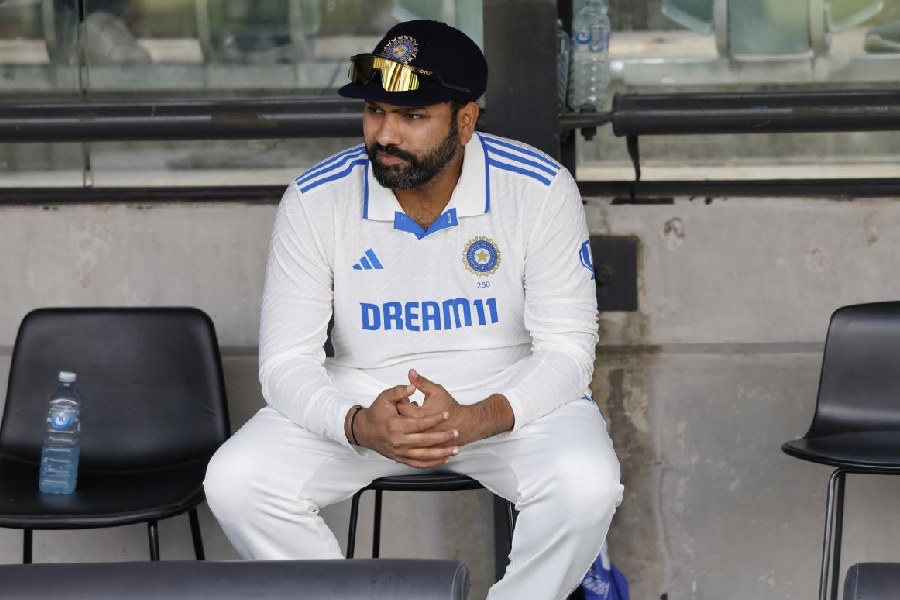 |
| Brett Lee stretches at Old Trafford on Wednesday. (Reuters) |
England have won a live Test match against Australia. It’s one victory each with three games to come. This is not only a prospect to relish, it is also something that should make every England cricket supporter proud to be Australian.
As for Australia, they took their defeat decently, philosophically, sportingly, vowed to do better next time, talked about their respect for the England cricketers and then went and had a beer with them. Almost, one might think they were English. Is there a spot of role reversal going on?
It’s not an inadvertent thing, not on England’s part. For the better part of a decade, England have been coldly and deliberately trying to be more Australian. They have stopped short of Vegemite sandwiches and singing Two Little Boys, but only just.
Turning into Australia has been the England masterplan. Why not? Every painter wants to be Vincent van Gogh without the sad bits, so England cricket has tried to be like Australia without the sad bits.
They have sought to create a culture of excellence, of purposeful progress towards being the very best in the world. Obviously, the easiest way to do this is to steal as much as you can from the best in the world.
So they did things such as setting up an academy and putting an Australian in charge of it. Rodney Marsh, former Australia wicketkeeper, former holder of the Sydney-to-London tinnie-drinking record and former dedicated insulter of English cricket, has been teaching our boys to be better pie-throwers.
But above all, it is the Australian attitude that England have sought to steal, the notion that nothing is compromised in the pursuit of excellence and that when it comes to matchplay, you play with your guts on show and you play to win. Above all ? and this is the really difficult bit ? you expect to win.
This business of expecting to win was at the heart of Australia’s extraordinary fightback from a situation in which all was apparently lost. Even when it was absurd to continue, they believed that they could win. And they near as damn it did.
But despite the return of the old self-doubt in the final stages of that unforgettable match, the fact is that England did manage to win, that Stephen Harmison did manage to produce a rearing beast to finish things off.
Perhaps England are beginning to work out which bits of Australia they want to keep and which they can jettison. England have at times adopted vindictive, bitter sledging, as if bad manners alone made you a better cricketer. The fact is that purposeful banter is a symptom, not a creator of confidence. Without the confidence it is bluster that fools no one.
But the second Test was played in a notably gentlemanly fashion, barring the odd bit of over excitement. One of the great sporting moments came when Andrew Flintoff’s first thought in victory was to console Brett Lee, the devastated Australia batsman.
The tone of this series, it seems, has been set by Flintoff: uncompromising on the field, positively busting with self-confidence, but devoid of hatred and bitterness. He is, you must say, Australian ma non troppo. He has taken the best things Australia have brought to cricket and made them his own.
As for the Australia cricket team, they are not as greatly loved in their country as you might expect. Many Australians were hoping for a tight series, rather than the usual canter.
The team has responded to this by becoming less grudging. One or two of them, Adam Gilchrist in particular, have taken to walking when edging a ball to the wicketkeeper, instead of waiting to see if the umpire noticed.
This had become a practice as rare as the purple-crowned Fairy-wren of Australia. But Australia, filled to satiation on mere victory, have brought it back from the brink.
During the past decade, Australia have made cricket more intense than ever but have restored at least some of sport’s traditional decencies. These are decencies traditionally associated with ? if no longer much practised by ? England and they make sport a more rewarding spectacle.











